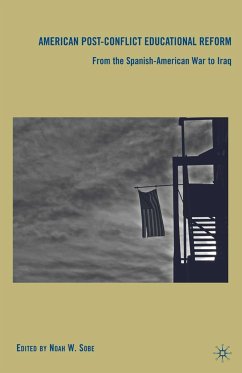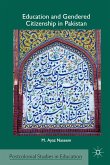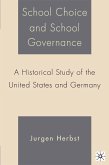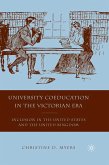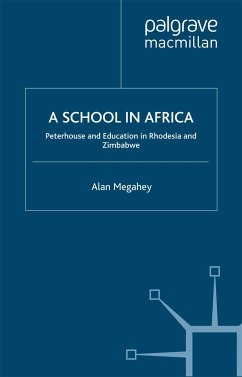Dieser Download kann aus rechtlichen Gründen nur mit Rechnungsadresse in A, B, BG, CY, CZ, D, DK, EW, E, FIN, F, GR, HR, H, IRL, I, LT, L, LR, M, NL, PL, P, R, S, SLO, SK ausgeliefert werden.
"Post-conflict education is often narrowly associated with government-sponsored interventions and we tend to forget about the missionaries, philanthropists, volunteers, military advisors, university professors, and, last but not least, development consultants that, either solicited or unsolicited, become actively involved in reconstruction efforts. What did these Americans think and do and how did they justify their presence? This book convenes the brightest minds to analyze U.S. post-conflict educational reform." - Gita Steiner-Khamsi, Professor, Teachers College, Columbia University; President of the Comparative and International Education Society
"This book is unusual in the degree of coherence in the papers included here, the uniformly high quality of the individual case studies, and the way they fit together into a fruitful organizational scheme. The impulse to share ideals with othersis a very strong American impulse, and the case studies show how this process of ideological philanthropy played out in a wide variety of settings over the years. This is an interesting book that will stimulate fruitful conversations in the academy." - David F. Labaree, Professor of Education, Stanford University

